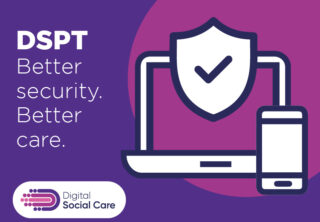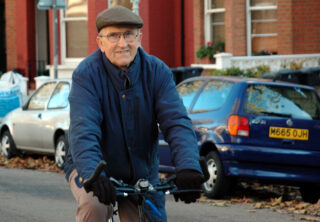Be courageous, ambitious and creative! Developing a carers pathway in Southwark
The 2014 Care Act introduced a new status for carers alongside those they support and gave them legal rights to assessment and support in their own right. IPC Associate Consultant Melanie Henwood has recently supported the London Borough of Southwark as a ‘Critical Friend’ in assessing the development of their Carer Pathway, and highlights some of the key findings and transferable learning.
Since the 2014 Care Act, carers – the family and sometimes friends - who provide vital unpaid care and support to enable elderly and other people to live as independently as possible at home, have had legal rights. The Act gave them ‘parity of esteem’ – essentially meaning that their own needs must also be assessed, and the ‘wellbeing principle’ of the Act adhered to in ensuring that carers are able to look after their own health and wellbeing. Not only should the carer’s own needs for support be explored, but also – as set out in the statutory guidance – “the sustainability of the caring role itself”, both now and in the future. Carers who are assessed as having eligible needs are also entitled to a personal budget to enable them to meet their needs, taking into “account the outcomes that the carer wishes to achieve in their day-to-day life” (Department of Health, 2014). This might include, for example, a carer’s wish to participate in education, paid employment, or leisure activities.
It can be challenging to get things right, especially when this might be a significant departure from a previous model of support where carers have rarely had a separate assessment (but been considered alongside the cared for person), and where support to the carer has largely been indirect through supporting the cared for person. This is the situation that the London Borough of Southwark has been addressing, and they recently requested IPC to support them as a ‘Critical Friend’ in reviewing their work in developing a carers pathway. The Southwark journey will be similar in many respects to that of other councils, and the local authority was keen to share its experience.
A key recommendation we offered was to locate the planned carers pathway within a more strategic approach, with a clear statement of underpinning principles and values, and a focus on the purpose and vision.
Southwark is developing a hub-based approach to adult social care (focused around three hubs for Wellbeing; Ageing Well and Disability). Historically, various social care teams have worked differently and only the Mental Health Team had retained an explicit carer focus through an Advanced Practitioner Carers Lead. Other teams found it more difficult to ensure they were always carer-aware, as this comment highlighted:
“Mental Health really protected the role (…) but the others assimilated the role and the money into everyday work (…) When people are busy and they’re assessing service users, it’s really difficult to stretch their energy and motivation to ensure the carer is also getting assessed.”
Although Southwark has had relatively high levels of expenditure on carers historically, this has often not been visible to, or understood by, carers who did not see a focus on their own needs separately from those of the person they cared for. In the past carers assessments were also outsourced (but have now been brought back in-house), and it was acknowledged that this had previously resulted in a good service for a small number of people, but many fell through the net. We underlined the intrinsic value for carers of them having their own separate assessment – just being heard and listened to can be very powerful, as this comment recognises:
“And saying, ‘now this is about you; what would make a difference to you?’ It’s often very simple things that people are asking for (…) why don’t we think about that instead of always thinking about a physical service?”
The hubs are being developed as the first point of access for information, advice and low-level support, and it is envisaged they will have a preventative role in meeting needs without people having to formally access local authority social care. The hubs offer the opportunity to consolidate information and advice for carers and those they support, enabling improved and earlier identification of carers to take place alongside signposting to universal and community-based services and resources.
In addressing what Southwark needs to do next in taking forward its carers pathway, we agreed with them that the biggest challenge is the requirement for transformational organisational change. There is a clear commitment to developing a new and more explicit focus on carers, and this needs to be driven through at all levels of policy and practice. Services and support need to be empowering, and this requires staff to be courageous in attempting new ways of working and stepping away from a more traditional and risk-averse approach to support.
Southwark recognises the training and workforce development implications of their approach; in developing a more strengths-based way of working throughout adult social care (and the VCS), and integrating the focus on carers and service users, the workforce will need to challenge itself and find new models (including greater use of Personal Budgets). There are great opportunities for both formal and informal learning and experience sharing, including reflective practice sessions.
Perhaps the most important conclusion we all reached was the need to make co-production with carers a central feature of the approach going forward; carers need to be fully involved and respected as experts in their own right and have a lot to offer around training and promoting genuine carer-awareness. There is also a substantial partnership agenda around good quality carer support, and it will be important that health partners are also engaged in joint training around the Carers Pathway and recognise their own role in signposting and offering carer support services (including talking therapies, counselling and psycho-social interventions).
This is the beginning of the carers transformation, not the end, and it will be essential that progress is monitored and assessed, with appropriate metrics and benchmarking against ‘family’ authorities. How will Southwark – and other authorities addressing similar challenges – make the transition and how long could it take? As this person reflected:
“Achieving is an ongoing process…but to get to where we feel confidently that the carer is a person in their own right in our work; one year would be too challenging. I would like to think in 2 years’ time we have started making different steppingstones we can begin to build on. Being realistic – the measures, what would we like to see in two years? That’s important – be ambitious, because we should be in social care; be ambitious and creative.”
The London Borough of Southwark Carers Pathway continues to develop, for further information contact:
Simon.Rayner@southwark.gov.uk
Simon Rayner
Assistant Director of Adult Social Care, Children with Disabilities and Chair of the Carers Pathway Board
Department of Health. (2014). Care and Support Statutory Guidance.
Related News

Supporting the provider care market to go digital and use technology safely
24/06/2024
Read the feedback from our webinar targeting Adult and Social Care commissioners






